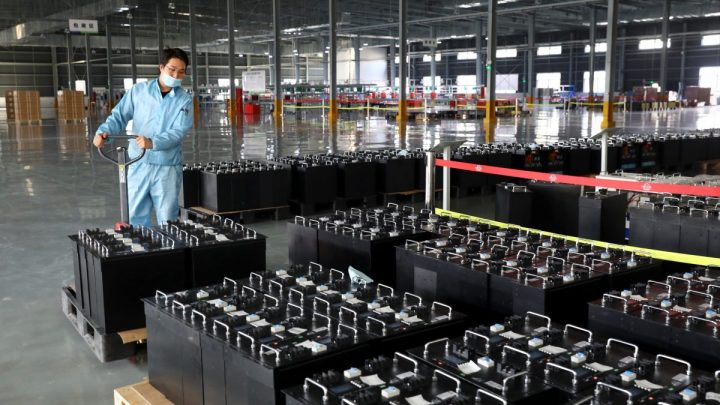
U.S. imports rise in April, but share of goods from China decreases
U.S. imports rise in April, but share of goods from China decreases

Trade data out from the Commerce Department Thursday shows that Americans bought more stuff from abroad in April than in March — more cars and car parts, more cell phones and household goods. But something of note: The share of imported goods from China declined to its lowest level since 2006.
China is a producing powerhouse. Just think of all those ring lights, sweatpants and home gym equipment we desperately craved during the depths of the pandemic. A lot of which, if you’ll recall, got stuck on container ships.
“Practically every manufacturer who has relied on lean-and-mean global supply chains now is much more worried about the resilience about those supply chains,” said Eswar Prasad, a professor of trade policy at Cornell.
They want to diversify their suppliers in case of public health crises, natural disasters and war. Plus, rising tensions with China represent an extra risk.
“Manufacturers and retailers don’t want to be exposed to the risks that geopolitical tensions with China or just basic trade tensions might lead to disruption,” Prasad said.
So, companies have shifted to Vietnam and Thailand for cheap apparel and footwear, and Mexico for its proximity to the U.S. But Chinese imports aren’t going to disappear anytime soon.
“The Chinese have definitely locked up a lot of the lithium supply around the world,” said David Dollar, a senior fellow at the Brookings Institution. “And they’ve got a lot of the patents involved in the production of batteries so that gives them a leg up in the electric vehicle market.”
Meanwhile, China’s also been maturing as an economy and shifting its export focus to different and more valuable things, according to Susan Aaronson, a professor of international affairs at George Washington University.
“As countries develop, right, they tend to export more services. And so China had this deliberate plan to move up that value chain,” she said.
So, yes, we’re importing less from China overall and, yes, you might not see the words “Made in China” on as many tags these days — but that’s partly because you can’t sew a label onto software, e-commerce and AI.
There’s a lot happening in the world. Through it all, Marketplace is here for you.
You rely on Marketplace to break down the world’s events and tell you how it affects you in a fact-based, approachable way. We rely on your financial support to keep making that possible.
Your donation today powers the independent journalism that you rely on. For just $5/month, you can help sustain Marketplace so we can keep reporting on the things that matter to you.











